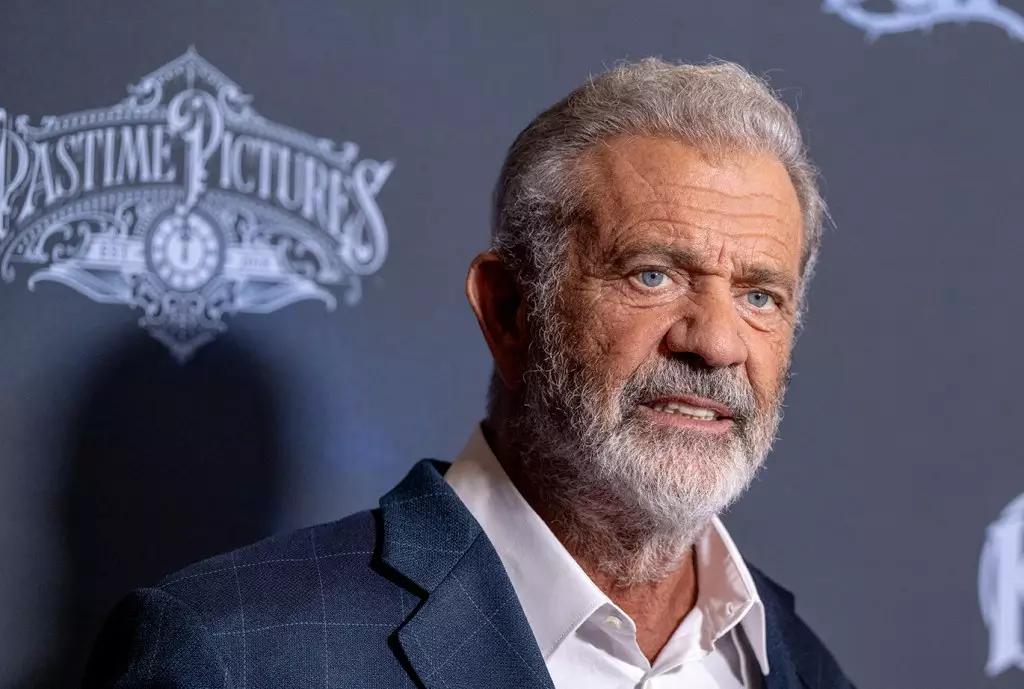The recent claims made by Elizabeth G. Oyer regarding the termination of her position as a Justice Department pardon attorney reveal a troubling intersection between celebrity and justice. Oyer’s dismissal, reportedly following her refusal to endorse the restoration of Mel Gibson’s gun rights, has sparked significant debates about the integrity of our legal system. Is it acceptable for an individual with a history of domestic violence to regain access to firearms simply because they have high-profile connections? The prioritization of celebrity status over public safety is a dangerous precedent that undermines the credibility of our justice system.
The Dark Legacy of Mel Gibson’s Past
Mel Gibson, celebrated for his two Oscars and impactful films, carries with him the weight of a notorious 2011 domestic violence misdemeanor conviction. Despite his attempts to frame this moment as a humiliating and painful experience, the reality is stark. The law is clear: those convicted of domestic violence offenses are prohibited from owning firearms for a reason. Domestic violence is not merely an isolated act but often a precursor to further violence; studies consistently reveal that recidivism rates among domestic abusers are alarmingly high. Allowing Gibson to regain his gun rights poses a direct threat to public safety, especially considering the potential for abusive patterns to repeat themselves.
Cloaked in Favoritism
The revelation that Oyer faced pressure from the U.S. Deputy Attorney General’s office to endorse Gibson’s request raises serious ethical questions. What does it say about our justice system when decisions appear to be swayed by the personal relationships of convicted individuals? This is not simply a matter of bureaucracy gone awry; it demonstrates a troubling favoritism. If the legal system begins to operate on the premise that celebrity connections can mitigate accountability, we risk creating a hierarchy of justice that privileges the rich and famous over the average citizen.
Public Safety over Political Connections
Oyer’s unwavering stance against the recommendation to restore Gibson’s gun rights should be applauded. It is not just a professional decision but a moral one—an acknowledgment that public safety must transcend political affiliations and celebrity status. Her assertion that “giving guns back to domestic abusers is a serious matter” reflects a deep understanding of the potential ramifications. The callous disregard for public safety in favor of upholding the status of a Hollywood figure is a narrative we simply cannot allow to dominate our society.
The Ambiguity of Influence
The conversation surrounding Gibson’s pardon problematizes the intersection of entertainment and governance. The weight of Hollywood’s influence shouldn’t lead to compromising public safety. Oyer’s firing raises significant concerns about the capability of the Justice Department to maintain impartiality against powerful influencers. Justice should not hinge on personal engagements with the President or special appointments. Those in positions of power must know that their deeds have consequences, and they should be held to the same legal standards as an everyday citizen.
Reflecting on Accountability
The implications of Oyer’s termination extend beyond the case of Mel Gibson. What does this say to future generations about accountability and justice? The belief that one can sidestep the ramifications of past violent actions due to fame is an unsettling narrative. Holding everyone to the same legal standards is non-negotiable if we ever hope to foster an environment of safety and trust within communities. The idea that celebrity, political connections, or status can override the law deeply undermines the faith the public places in our legal institutions.
The dismissal of Oyer signals a deeply concerning message: a perilous blending of celebrity culture with justice, where forgiveness and pardon may be granted based merely on one’s connections rather than on the substance of their character. The gravity of permitting individuals with a history of domestic violence to possess firearms should loom large over any discussions surrounding restorative justice. It’s time to loudly challenge this dangerous precedent before it becomes normalized within our legal framework.


Leave a Reply